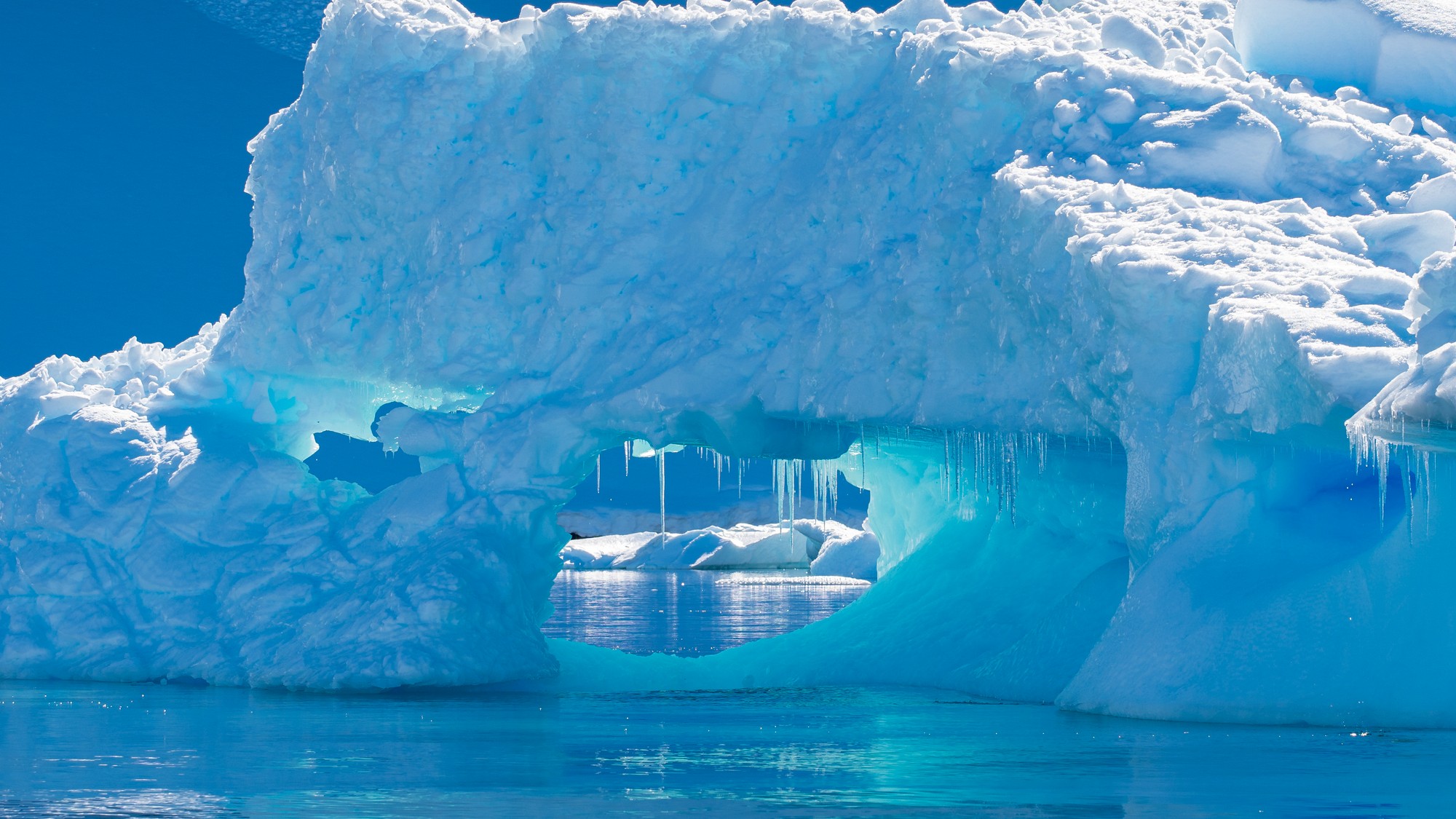Unusual ideas to slow polar melting are gaining traction
Pondering the polar problem


A free daily email with the biggest news stories of the day – and the best features from TheWeek.com
You are now subscribed
Your newsletter sign-up was successful
The polar ice caps are melting, and it is, to put it mildly, a problem. Melting glaciers have several environmental and ecological ramifications; those implications include rising sea levels and slowing time itself. Coastal communities and islands are especially at risk of flooding and ceasing to exist. The clock is ticking to prevent potential catastrophe, and, as such, scientists are exploring rather unconventional solutions.
Underwater curtains
An idea that has been discussed for several years is to erect underwater curtains that would "prevent warm water from lapping at the base of the ice shelves," said Nature. "In the polar oceans, you have warm salty water at depth with colder fresher water on top," glaciologist Michael Wolovick said to NBC News in 2018.
"This warm water is the biggest threat as it causes the base of the floating ice to melt and the glacier to become unstable. If you could block this water flow, it would reduce the melt rate." Any underwater curtains would likely be built by robots. The logistics of such a construction still pose major questions. "No one can say yet what such curtains would be made of, how they would be secured or how to stop them interfering with other vital local ecosystem services," said The Economist.
The Week
Escape your echo chamber. Get the facts behind the news, plus analysis from multiple perspectives.

Sign up for The Week's Free Newsletters
From our morning news briefing to a weekly Good News Newsletter, get the best of The Week delivered directly to your inbox.
From our morning news briefing to a weekly Good News Newsletter, get the best of The Week delivered directly to your inbox.
Cooling bedrock
Another way glaciers lose ice is heated bedrock. "Glaciers are always moving toward the sea over a thin layer of water just above the underlying bedrock," said NBC News. "As glaciers move along, their bottom surfaces scrape against the bedrock, generating friction and heat and causing some ice to melt."
This heat coupled with the already warming air and water temperatures due to climate change are causing the glaciers to move quicker, therefore melting more quickly. To combat this, some scientists proposed drilling a series of holes in the bedrock to siphon away water from the glacier's base. "The concept is straightforward: When a huge mass of ice sits on a bed of rock, the combined pressures and temperatures liquefy a thin layer of water at the interface of the rock and ice that helps the ice slide away," said The Economist. "Removing this lubrication should help keep the ice in place." Some scientists also suggest using tunnels to run cold liquid through bedrock to reduce frictional heating.
Blocking solar radiation
One of the more controversial methods is to use solar geoengineering to block the sun. Scientists have discussed the possibility of spraying aerosols into the atmosphere which would reflect light and therefore prevent warming.
"Exploring ways to reflect sunlight into space before it is absorbed into Earth's climate system could help buy us more time to address climate change and avoid or delay climate tipping points," Paul Goddard, an assistant research scientist in the Department of Earth and Atmospheric Sciences at Indiana University, said to Phys.org. "Releasing stratospheric aerosols at multiple latitudes within the tropics and sub-tropics, with a greater proportion in the Southern Hemisphere, is the best strategy for preserving land ice in Antarctica because it helps keep warm ocean waters away from the ice shelves."
A free daily email with the biggest news stories of the day – and the best features from TheWeek.com
While the method shows promise, many are concerned about the ecological ramifications of blocking the sun. Modifying solar radiation is "not necessary, viable, prudent or sufficiently safe, given the limited scientific understanding and uncertainty about the potential impacts and unintended consequences," said the United Nations Environment Programme chief scientist Andrea Hinwood in a report.
Let it be
Some say there is no true solution to polar melting, and it is best to simply attempt to reduce greenhouse gas emissions. A study published in the journal Nature Climate Change found that increases in Antarctic ice melting are largely unavoidable even with intervention.
"Unfortunately, it's not great news," Kaitlin Naughten, one of the authors of the paper, said in a press briefing. "Our simulations suggest we are now committed to a rapid increase in the rate of ocean warming and ice shelf melting for the rest of the century."
In addition, many view geoengineering measures as a distraction from reducing carbon emissions, especially because the aforementioned methods are difficult to implement. "Polar projects … are likely to be extremely expensive — costing many tens of billions of dollars," said The Economist. "They present unprecedented engineering challenges."
Devika Rao has worked as a staff writer at The Week since 2022, covering science, the environment, climate and business. She previously worked as a policy associate for a nonprofit organization advocating for environmental action from a business perspective.
